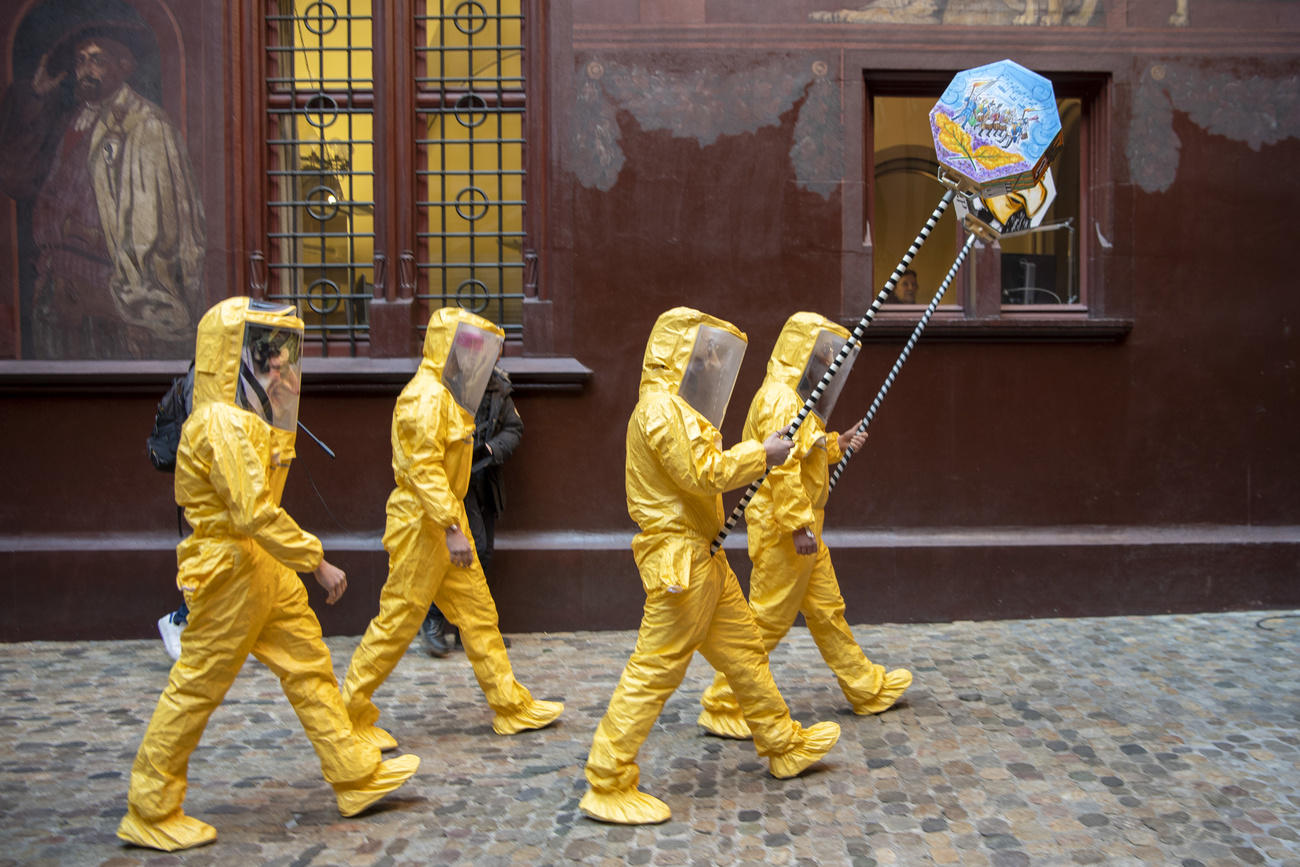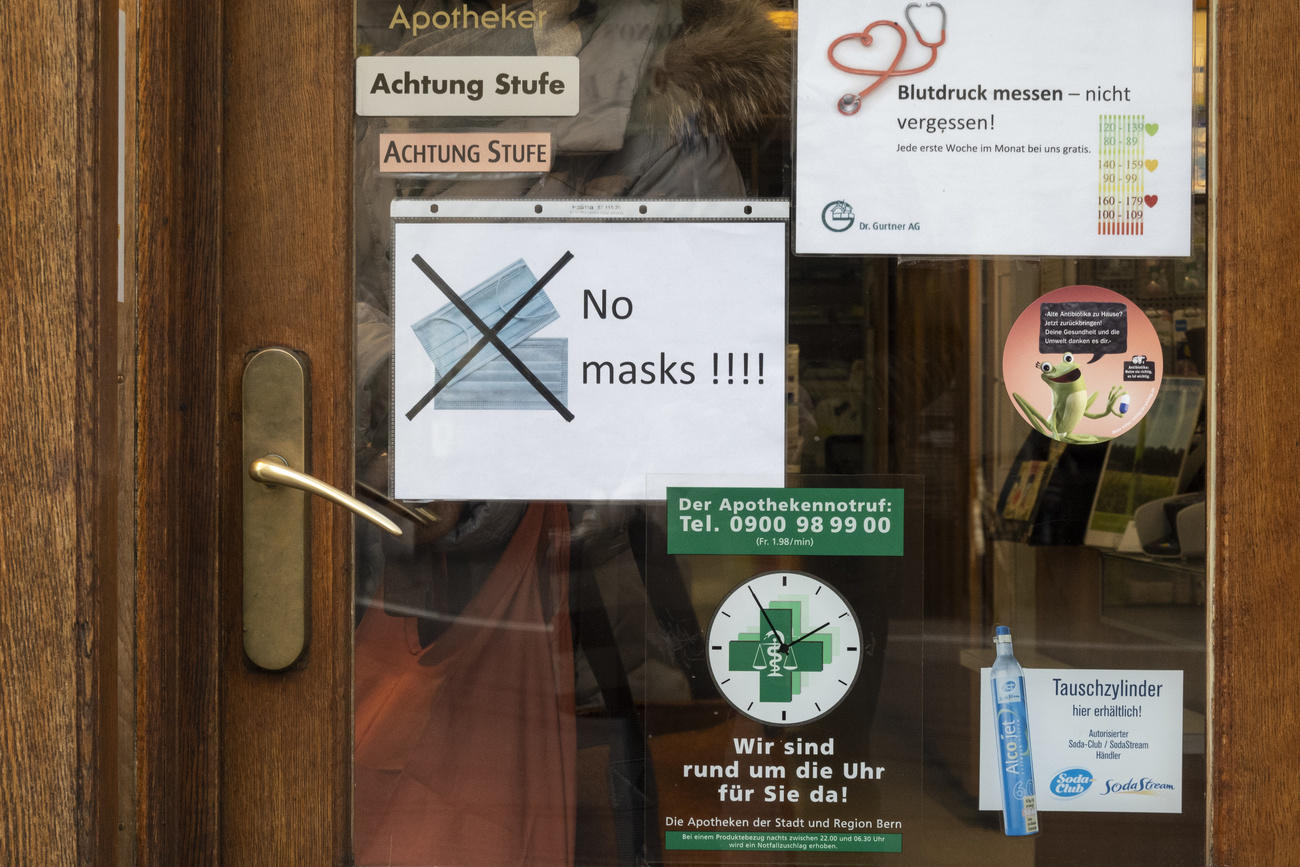Switzerland bans major public events to slow spread of virus

Switzerland has imposed a ban on public events that gather more than 1,000 people together in the same place until at least March 15 in response to the coronavirus threat.
The ban comes into force with immediate effect in the midst of the carnival season which draws thousands of revellers to many Swiss towns and cities. It also affects sports events across the country and has prompted the organisers of the international motor show in GenevaExternal link and the BaselworldExternal link watch fair to cancel their gatherings this year.
There are currently no travel restrictions for entry into Switzerland, according to the Federal Office of Public Health.
Find more details about the situation in Switzerland on the official website.External link
“The government’s top priority is to protect the population. It is responding to the latest developments in the coronavirus epidemic and has categorised the situation in Switzerland as ‘special’ in terms of the Epidemics Act,” the government said in a statementExternal link on Friday.
This marks the first time in recent Swiss history that such a country-wide ban of large scale event has been enforced under the 2016 epidemics law. It notably limits the powers of the 26 cantonal authorities mainly in charge of health matters.
“At the moment, the situation is still under control, but it can change quickly,” warned Interior Minister Alain Berset at a news conference on Friday.
He said that the nationwide ban was part of the government’s strategy which would be adapted if necessary.
“The latest measures provide for more coherence and improve coordination,” Berset said. “But the government is aware that the measures will have a significant impact on public life and on the economy.”
Offices, schools
He added that big office buildings, public transports, ski resorts or army barracks are not affected directly by the ban at this stage, as individual hygiene measures can be applied there.
Public or private events attracting fewer than 1,000 people are subject to approval by the cantonal authorities.
Heidi Hanselmann, president of the cantonal health directors, said the cantons would implement the national measures. Further steps, including hospitals and public schools, would remain a cantonal responsibility for the moment.
Switzerland currently has 15 cases of infections with corononavirus and about 100 people have been quarantined.
“The figures are likely to rise in the next few days,” said Berset.
Daniel Koch, senior expert on communicable diseases at the Federal Health Office, said there has been no case of Covid-19 infection within Switzerland.
It’s believed that there is not a large number of unrecorded cases at this stage in Switzerland, unlike the situation in neighbouring Italy and Germany.
The first confirmed coronavirus case in Switzerland was announced on Tuesday. Numbers of infected people have been growing throughout the week and the number of tests on suspected cases has been ramped up.
Events cancelled
Some major events, including two watch fairs, the Engadine ski marathon and carnivals in the southern canton of Ticino, bordering Italy, have already been cancelled.
Ice hockey matches in Ticino will also be played behind closed doors without fans, it had previously been stated.
On February 17, the Geneva International Exhibition of Inventions, which was due to take place at the end of March, announced that it had been postponed by six months due to the coronavirus outbreak.
The Geneva International Motor Show, which attracts around 500,000 people every year, scheduled for March 5-15, was also cancelled.
Officials at the European headquarters of the United Nations in Geneva said they were assessing the Swiss decision but would “obviously follow the host country position”.
“That being said, in our initial assessment we don’t see until March 15 any gathering here of more than 1,000 people apart from the UN Human Rights Council,” said Alessandra Vellucci, director of the United Nations Information Service.
The 43rd session of the council is currently underway with over 1,000 international participants discussing various human rights issues.

More
Coronavirus cases are spreading in Switzerland

In compliance with the JTI standards
More: SWI swissinfo.ch certified by the Journalism Trust Initiative



You can find an overview of ongoing debates with our journalists here. Please join us!
If you want to start a conversation about a topic raised in this article or want to report factual errors, email us at english@swissinfo.ch.